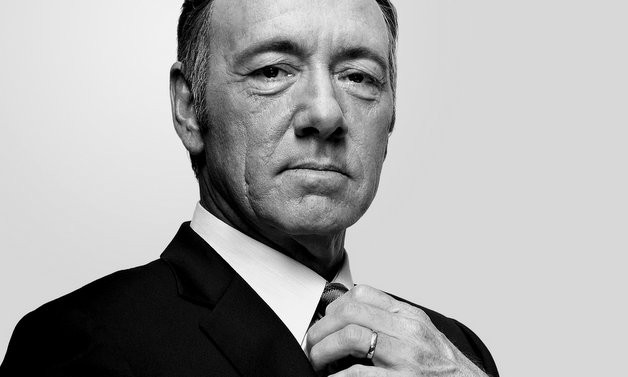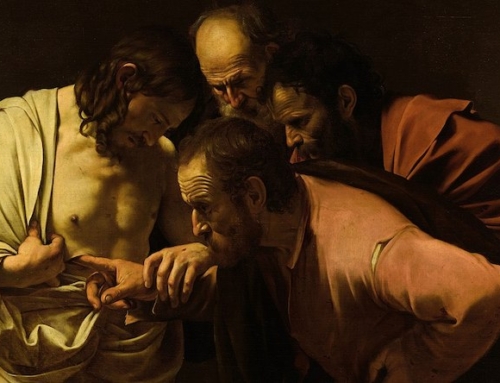Can there be any redemption in the dark Netflix political thriller House of Cards? Within the show, probably not—morally speaking, Frank Underwood is so far back in the woods, he’d have to come out to hunt. But for viewers, the inky darkness in which the characters live and die might be just the ticket to finding something better.
Watching the show is certainly no penance. Its dark glamor is addictive, and the excellent writing and acting keep the viewer’s attention even through some uneven or tedious plot development. Though the series succumbs periodically to the modern tendency to be needlessly crude or explicit, its overall artistic merit is undeniable.
Some have criticized the show for being at times unrealistic in its portrayal of American politics. I daresay the show is almost entirely unrealistic as a portrait of the policy debate in Washington. House of Cards shows a fantasy world where malevolent, long-term planning is what’s really running the plot in D.C., rather than that familiar, shortsighted incompetence to which we’ve grown accustomed. The show has nothing to say about the entrenched ideological differences that define our contemporary political sclerosis. After all, the main character is a white, South Carolina Democrat whose signature political successes include breaking teachers unions and raising the retirement age. The creators might as well have begun the show with “Once upon a time, in a land far, far away…”
Such criticisms miss the point. House of Cards is a drama—well, maybe a melodrama—about power and human nature. Like Shakespeare’s historical plays, the show takes considerable liberties with political realities for the sake of exploring timeless themes. House of Cards is much more Richard III than All the President’s Men. Therein lies the show’s greatest strength. As viewers, we are drawn against our better judgment into sympathy with a truly villainous anti-hero—and thereby learn something valuable about ourselves.
Underwood’s asides are in keeping with the original British version of the series, which in turn imitated Shakespeare’s hunchbacked political fiend. As the plot unfolds, we get to hear what Underwood really thinks—every knowing glance and cutting aside reveals his double game. Some of these moments are conventional fourth-wall comedy, letting the viewer in on the joke and making predictable plot developments delightful. But by letting us into Underwood’s internal monologue, the creators make it almost impossible for us to assure ourselves that, deep down, he is good at heart.
There’s no such easy way out in the House of Cards universe. Instead, we are confronted with the cinematic version of nature without grace. The different characters of the show try making various things their final end or ultimate goal, and we follow these choices to their eventual outcomes. Peter Russo pursues sensual pleasures—drinks, drugs, and sex—and is ultimately enslaved and destroyed by them. Remy Danton’s clients are concerned mainly with wealth, but are ultimately outbid by others who see money as the subordinate, instrumental good it is. Vain politicians make fools of themselves seeking fame and glory, while naïve idealists give their all for causes that ultimately never satisfy. And then, of course, we have the Underwoods: a Francis and Claire who couldn’t be further from Assisi, ruthlessly, relentlessly pursuing power.
Even as Francis Underwood reaches the summit of power, one can practically feel the consequences of his past actions breathing down his neck. If anything is certain in the story arc, it is that there will be—there must be—a fall. For it is in the very nature of power that it refuses to be held by anyone for long. And then what will it all have been for? In a rare moment of introspection, Claire once asked her husband that very question. Their marriage, while disturbingly candid and intimate, is fundamentally selfish—reflected most obviously in their decision to remain childless. “For us,” he assures her. I wonder.
Ashes to ashes, dust to dust—House of Cards is bracing for its obstinate refusal to let us out of the utter darkness. On its own, it could lead to a certain type of despair: all these varieties of human grasping, striving, and climbing end in frustration—and death. All the different ends that men try vainly to jerry rig as ultimate goals give no lasting peace and satisfaction.
As Christians, we should be grateful for the lesson, and meditate on it especially as we start the season of Lent. “Vanity of vanities, all is vanity” (Eccl 1:2). Even though we profess God as our final end, how often we lie to ourselves by half-measures, taking transitory and secondary goods and making them into ersatz final ends. House of Cards provides an opportunity to explore the way we lie to ourselves, and consider what our inner Frank Underwood might say were he to break our fourth wall.
So is House of Cards unexpectedly fitting material for Lenten reflection? You might very well think that—I couldn’t possibly comment.
✠
Image: House of Cards (Netflix)







